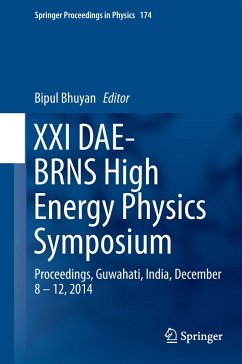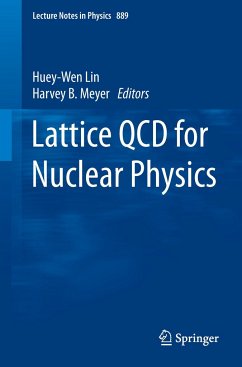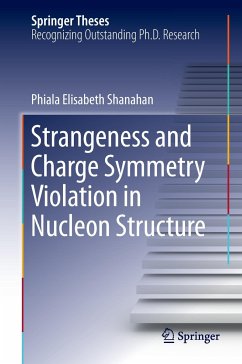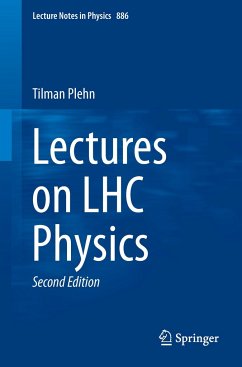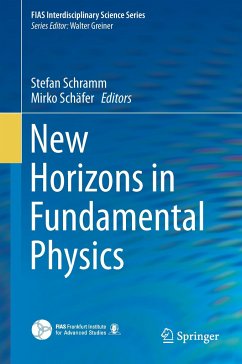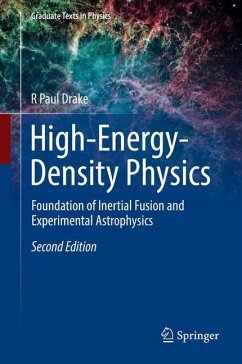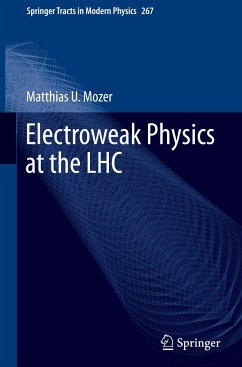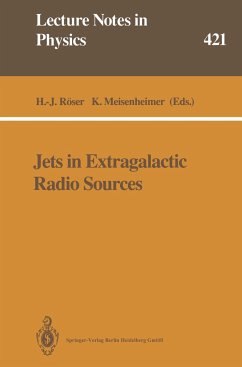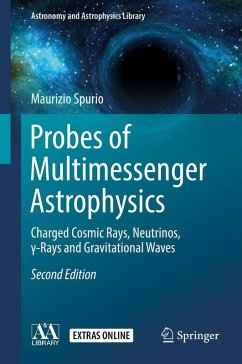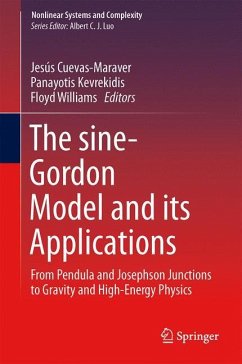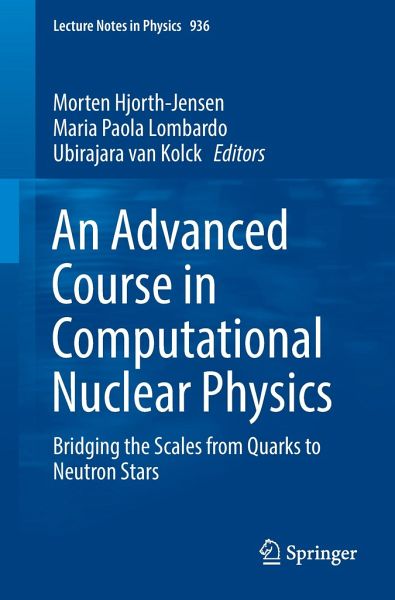
An Advanced Course in Computational Nuclear Physics
Bridging the Scales from Quarks to Neutron Stars
Herausgegeben: Hjorth-Jensen, Morten; Lombardo, Maria Paola; van Kolck, Ubirajara

PAYBACK Punkte
46 °P sammeln!
This graduate-level text collects and synthesizes a series of ten lectures on the nuclear quantum many-body problem. Starting from our current understanding of the underlying forces, it presents recent advances within the field of lattice quantum chromodynamics before going on to discuss effective field theories, central many-body methods like Monte Carlo methods, coupled cluster theories, the similarity renormalization group approach, Green's function methods and large-scale diagonalization approaches.Algorithmic and computational advances show particular promise for breakthroughs in predicti...
This graduate-level text collects and synthesizes a series of ten lectures on the nuclear quantum many-body problem. Starting from our current understanding of the underlying forces, it presents recent advances within the field of lattice quantum chromodynamics before going on to discuss effective field theories, central many-body methods like Monte Carlo methods, coupled cluster theories, the similarity renormalization group approach, Green's function methods and large-scale diagonalization approaches.
Algorithmic and computational advances show particular promise for breakthroughs in predictive power, including proper error estimates, a better understanding of the underlying effective degrees of freedom and of the respective forces at play. Enabled by recent improvements in theoretical, experimental and numerical techniques, the state-of-the art applications considered in this volume span the entire range, from our smallest components - quarks and gluons as the mediatorsof the strong force - to the computation of the equation of state for neutron star matter.
The lectures presented provide an in-depth exposition of the underlying theoretical and algorithmic approaches as well details of the numerical implementation of the methods discussed. Several also include links to numerical software and benchmark calculations, which readers can use to develop their own programs for tackling challenging nuclear many-body problems.
Algorithmic and computational advances show particular promise for breakthroughs in predictive power, including proper error estimates, a better understanding of the underlying effective degrees of freedom and of the respective forces at play. Enabled by recent improvements in theoretical, experimental and numerical techniques, the state-of-the art applications considered in this volume span the entire range, from our smallest components - quarks and gluons as the mediatorsof the strong force - to the computation of the equation of state for neutron star matter.
The lectures presented provide an in-depth exposition of the underlying theoretical and algorithmic approaches as well details of the numerical implementation of the methods discussed. Several also include links to numerical software and benchmark calculations, which readers can use to develop their own programs for tackling challenging nuclear many-body problems.



